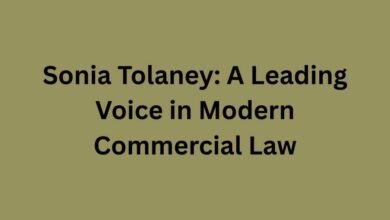Brian Ashcroft: Economist, Commentator, and Voice of Scottish Regional Policy

Brian K. Ashcroft, later known as Elizabeth Ashcroft, was born in March 1947 and pursued an academic path that eventually established her as one of Scotland’s most recognisable economic commentators. She studied economics at university during a period when debates around regional development, industrial decline, and state intervention dominated much of British economic thinking. These formative years shaped her career focus on applied and regional economics, particularly the Scottish economy, which was undergoing significant structural change from the 1970s onwards.
Her academic journey led her to the University of Strathclyde, where she would remain for decades. Rising through the academic ranks, she developed expertise in resource economics, applied econometrics, and energy economics, disciplines that became essential to her later analysis of Scotland’s place within both the UK and global economy.
University of Strathclyde and Fraser of Allander Institute
Ashcroft became most widely known for her work with the Fraser of Allander Institute (FAI), a research unit established within Strathclyde that provides impartial analysis of Scotland’s economy. As policy director and long-time associate, she was a driving force behind the Fraser of Allander Economic Commentary, which regularly reviewed economic performance, forecasts, and policy debates.
These commentaries were eagerly awaited by business leaders, government officials, and journalists. They offered evidence-based assessments of growth prospects, employment patterns, and productivity trends in Scotland. Ashcroft’s careful analysis combined technical expertise with an ability to communicate in accessible language, making her one of Scotland’s most trusted interpreters of complex economic shifts.
Research Focus and Contributions
Regional Economics and Policy
Her work consistently explored the challenges of regional economies within larger national frameworks. Scotland, with its historic reliance on heavy industries such as shipbuilding, coal, and steel, faced rapid decline during the 1980s. Ashcroft examined the consequences of deindustrialisation, the difficulties of attracting new investment, and the uneven nature of regional recovery.
Applied Econometrics
Ashcroft also contributed to applied econometrics, building statistical models that helped policymakers understand and forecast trends. Her modelling supported analysis on labour markets, firm formation, and sectoral changes. This evidence-based approach provided policymakers with tools to assess the potential impact of different strategies, from tax incentives to investment in research and development.
Energy and Resource Economics
Scotland’s North Sea oil reserves became a central political and economic issue from the 1970s onwards. Ashcroft paid close attention to how oil revenues, energy dependency, and global energy price fluctuations influenced both Scotland’s and the UK’s wider economic fortunes. Her work highlighted how resource-driven growth could generate prosperity but also risks of volatility and imbalance.
Voice in the Scottish Independence Debate
During the early 2010s, as the question of Scottish independence moved to the forefront of political debate, Brian Ashcroft emerged as a key commentator. She was not a partisan activist but rather an economist focused on the facts and forecasts.
Between 2012 and 2014, Ashcroft’s analysis was widely cited in media interviews, public talks, and academic forums. She emphasised the risks of over-reliance on oil revenues, the uncertainties around currency arrangements, and the importance of trade flows between Scotland and the rest of the UK. While some independence advocates criticised her caution, others respected the rigour of her evidence-based approach.
Her contributions helped shape public understanding of the referendum’s economic stakes, even if they did not always align with political optimism on either side.
Major Publications
Ashcroft’s scholarship produced a range of works across journals, policy reports, and books. Among her most influential contributions was the co-edited volume New Wealth for Old Nations, which explored strategies for small economies seeking growth in an era of globalisation. She also published extensively on topics such as firm creation, employment change in British counties, and productivity gaps within the UK.
The Fraser of Allander Economic Commentary, however, remained her most public-facing legacy. Through dozens of editions, she dissected Scotland’s short-term outlook, analysed UK fiscal policy, and examined structural challenges ranging from skills shortages to investment trends.
Recognition and Influence
Ashcroft’s role extended beyond academia. She was consulted by governments, business organisations, and think tanks. Her balanced perspective made her a frequent contributor to broadcast media and print outlets. Unlike many economists who remained purely academic, she combined scholarship with a public presence, strengthening the bridge between research and policy debate.
Transition and Personal Life
In 2020, Ashcroft made headlines when The Times reported that she had transitioned and was now known publicly as Elizabeth Ashcroft. This personal journey added another dimension to her long and respected career.
Ashcroft was also connected to Scottish public life through her marriage to Wendy Alexander, the former Scottish Labour leader. This connection further underscored her position at the intersection of academia, politics, and public debate.
Legacy in Scottish Economic Thought
Elizabeth Ashcroft’s legacy lies in her consistent, rigorous, and independent analysis of Scotland’s economic fortunes. She showed that sound policy must be grounded in evidence, not ideology. Her career spanned decades of upheaval, from the decline of heavy industry to the debates on devolution and independence.
Her work remains a benchmark for how economists can contribute constructively to public discourse. The Fraser of Allander Institute continues to carry forward this tradition of impartial, high-quality analysis, a testament to her influence on Scotland’s intellectual and policy landscape.
Conclusion
Brian K. Ashcroft, now Elizabeth Ashcroft, represents the role of the economist as both a scholar and a public communicator. She combined technical skill with clarity of expression, ensuring that Scotland’s economic debates were informed by careful analysis rather than rhetoric.
Her commentaries on growth, productivity, and independence left a lasting impact on policymakers and the public alike. As Scotland continues to wrestle with questions of its economic future, Ashcroft’s contributions serve as a reminder that rigorous, accessible, and balanced economic analysis is essential to sound decision-making.



